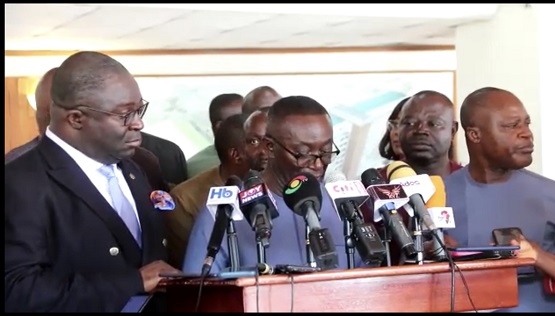In Ghana, matters of state affecting our politics, the economy and corruption are like the state of mind of a classical or choral music composer.
His fortissimos are loud enough to wake the dead.
In contrast, the pianissimos will lull an infant to sleep.
By Monday, this week, every radio and TV programme was angrily and shrilly condemning the immorality of the “monetisation of elections”.
By Wednesday, the fortissimos were giving way to pianissimos.
Our sense of anger is so brief it is practically ineffectual.
Like fire that does not consume, our anger does not frighten thieves of state.
I have a feeling this is how our politicians think of us, as a people — all bark and no bite! Nana Addo Dankwa Akufo Addo says “even this shall pass”.
His predecessor, John Dramani Mahama, is very sure that “Ghanaians have a short memory”.
They take safety in Nana Kwame Ampadu’s song, ‘Ehuru a ebedwo’ – allow the anger of Ghanaians to boil: it will soon cool.
Worried about the brevity of our collective anger against election corruption, I called an elderly colleague, who gave me a sermon.
Not only is he not surprised; but he also does not expect an end to it in the immediate future.
He actually warns it may get worse.
Why? The blame is collective.
All of us have been moulding this outrageously evil monstrosity, this new Ghanaian character, for years.
It started from “bentoa” to half-piece GTP wax print to five cedis cash (!) If we, city dwellers, were shocked, it was not that anybody sold their votes, but that they took “only five cedis”.
When rural dwellers started seeing the change in the lifestyle of their MPs – the designer wears, brand new 4x4s and sleek Mercedes Benz saloon cars – delegates have now decided to “chop” and are chopping with both hands.
A number of MPs have decided that enough is enough.
One of them said on radio this week that he didn’t know where he was going to get the money to pay GH¢4,000 per delegate in a constituency of over 400 delegates!
This has been us since 1996.
The build-up has been gradual.
Costs
A group of accountants set out to investigate.
They found that “the increasing costs of elections and political financing have turned public procurement into a mere source of cash for a political end”.
Indeed, Yours Truly has long concluded that while the desire for (re)-election may be a motivation for undertaking infrastructural projects (roads, bridges, clinics, etc.), the real compelling factor is the 10 per cent kick-back to build personal empires.
What has led to this? Simply: we talk too much, then go to sleep.
After much agitation in the media advocating an “urgent review” of the 1992 Constitution, President Atta Mills inaugurated a Constitution Review Commission on January 11, 2010, to do just that and “make recommendations to the government for consideration and provide a draft bill for possible amendments.”
The Commission submitted its Report to the government on December 20, 2011, and a White Paper was issued in which the government accepted most of the recommendations of the Commission.
What have Ghanaians done with this valuable review document?
We are still whining.
Action
The type of action I am calling for is intelligent, research-based, knowledge-backed loud and insistent advocacy.
In the first-ever Special Audit Report released on November 30, 2018, on Disallowance and Surcharge, the Auditor-General reported saving a net total of GH¢5,445,676,134 (over five trillion cedis), which some government officials fraudulently claimed was owed on various government contracts, but which had already been paid.
This attempt to fleece Ghana of this colossal sum was only stopped by the Auditor-General issuing Disallowances.
Victory in the surcharge and disallowance battle itself was won in 2016 in the OccupyGhana Versus Attorney-General case when the Supreme Court gave teeth to the Auditor-General.
Do you know how the activists paid the legal fees involved? From their own pockets.
In the latest scandal in which a certain rich man attempted to bribe 80 NPP MPs – which rich man Andy Appiah Kubi (MP) has refused to name – OccupyGhana is fighting for the constitutional right of Ghanaians to compel the Office of Special Prosecutor to disclose the name of that rich man.
That is advocacy.
This article is urging a joining of hands by the CDDs, the IEAs and the IDEGs of this world to stop Ghana from being bled to death by corrupt officials.
No government can forever ignore the strident and insistent voice of organised masses.
It has been done before.
In the battle to stop the SMC government from foisting the Union Government on the people, mass movements rose up, spearheaded by the Ghana Bar Association, the Professional Bodies Association, the clergy, etc.
The people won. In Kume Preko, the people won.
Those who died did not die in vain.
Dear reader, what can (can’t) you do?
The writer is Executive Director, Centre for Communication and Culture.





